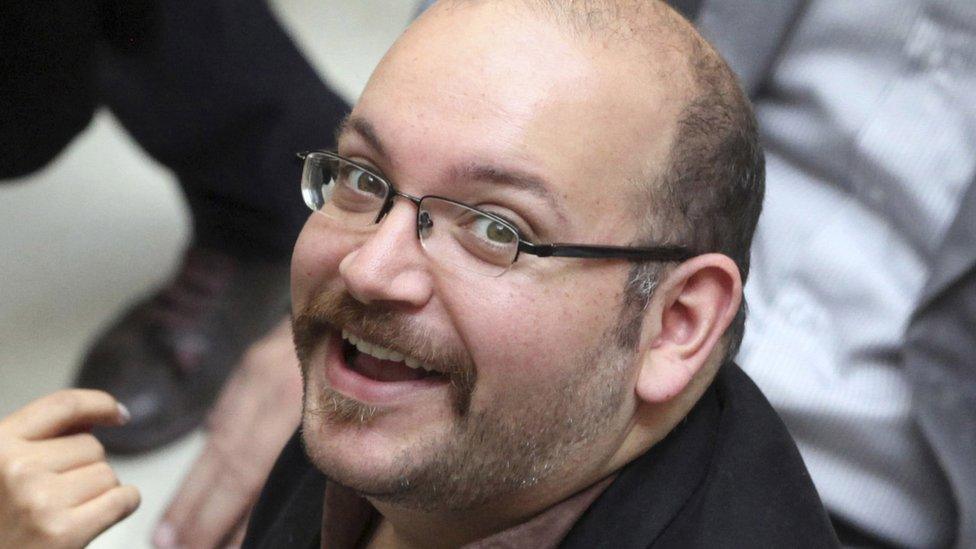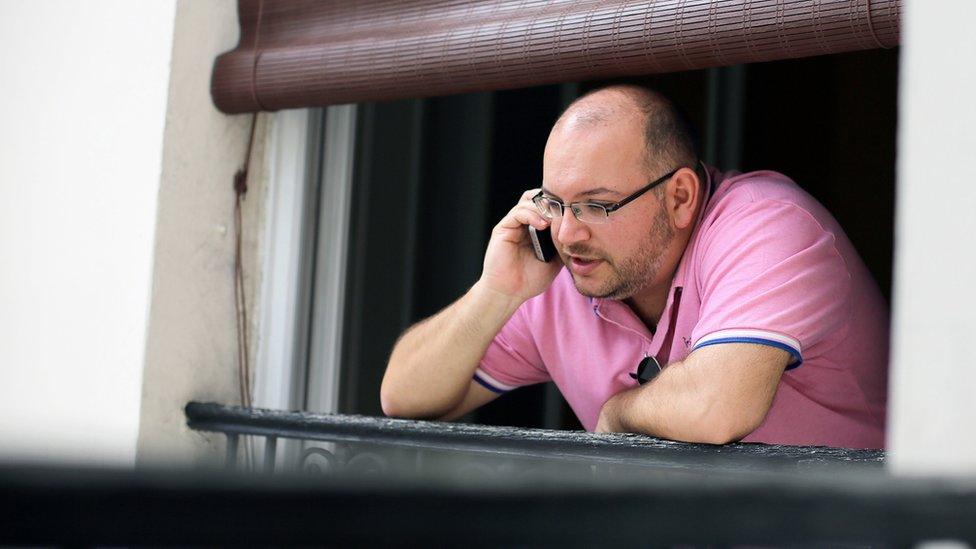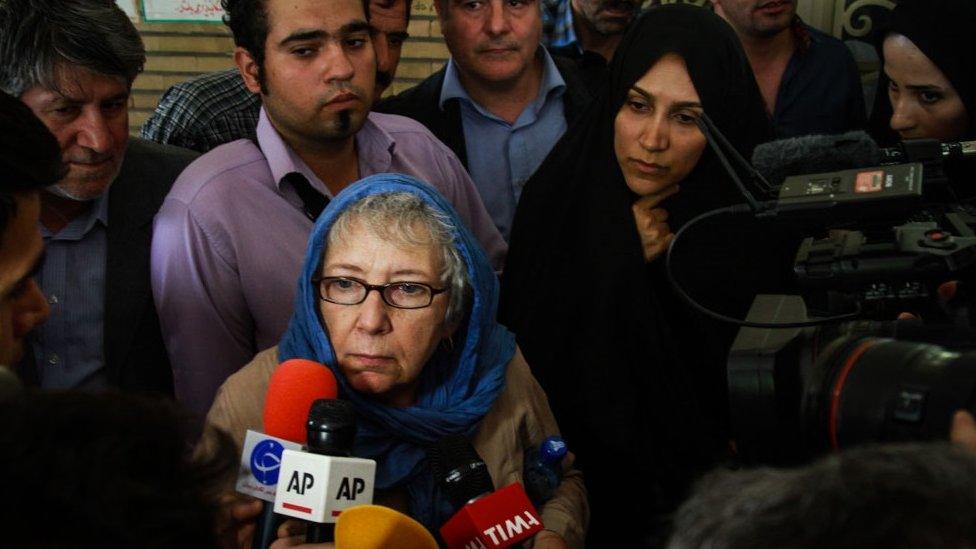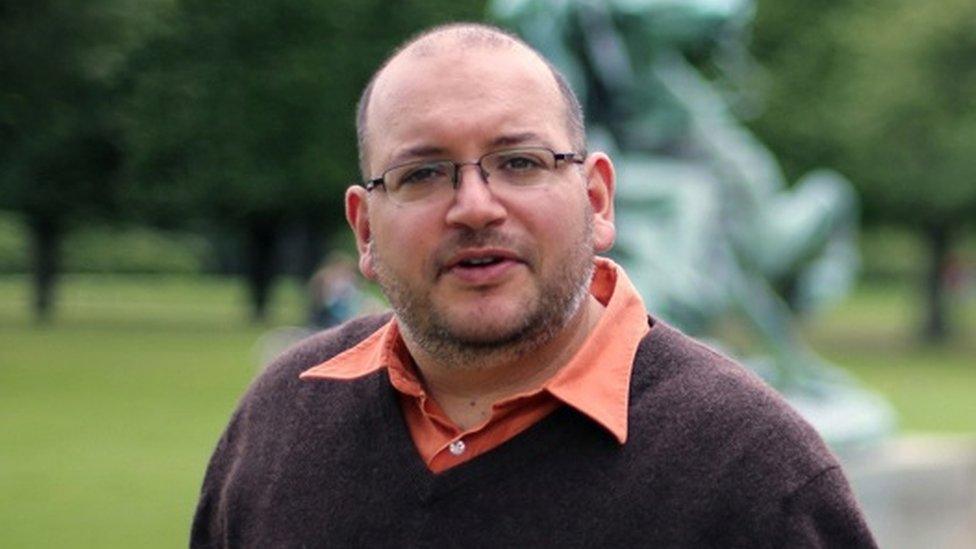Jason Rezaian - Now a free man
- Published

Jason Rezaian in Tehran, April 2013
Born and raised in the United States, Jason Rezaian was always fascinated by the country his Iranian father left in the 1960s.
His American mother Mary told the BBC that from an early age he had wanted to know more about the Iranian side of his heritage.
It was a curiosity which led him to study the Persian language while at college in New York, to apply for dual citizenship and eventually move to Iran to work as a foreign correspondent.
In 2012 he was appointed bureau chief for the Washington Post in Tehran, becoming the only US citizen officially accredited to work as a reporter in Iran.
He met his wife, fellow journalist Yeganeh Salehi, in Iran. She has single, Iranian citizenship. Her interest in the American culture was the perfect complement to his curiosity about Iran's culture.

Jason Rezaian had a deep interest in Iranian culture
Mr Rezaian has been an enthusiastic ambassador for his adopted country, encouraging people to visit Iran and tirelessly explaining that Iran is a far more complex, cultured and multi-dimensional than they might imagine.
Among his many friends and colleagues he is known for his level-headed, nuanced, and insightful reporting on Iran.
In the competitive world of media, he is not only modest, but also generous with his time and advice. He has seen his job as a way to introduce Iran to the world, and the world to Iran -- not the Iran of popular paranoia, but the real Iran that he had come to love.
The arrest
On 22 July 2014, the 39 year-old was arrested along with his wife at their home in Tehran.
Yeganeh was released shortly afterwards, but Mr Rezaian was kept in solitary confinement in Tehran's notorious Evin prison for nine months before finally being charged with espionage.

His mother said he wished he could have been able to cover the nuclear deal
Throughout his detention Mr Rezaian was allowed occasional phone calls and meetings with his wife and mother, who travelled to Iran to visit him.
The family said his long and lonely incarceration had taken their toll on this formerly cheerful and gregarious man.
They grew increasingly concerned for his physical and mental health, telling reporters he was sometimes deprived of essential blood pressure medication and had endured severe weight-loss, as well as suffering several serious infections.
The trial
Mr Rezaian was eventually put on trial behind closed doors in a Revolutionary Court.
He was not allowed access to his own lawyer and his family were not permitted to attend the hearing.

Few details were released about the exact charges against Mr Rezaian
Little has emerged about the substance of the case against Mr Rezaian, but in October 2015 Iranian state television reported that he had been found guilty.
"I think the only reason you could possibly imagine that the trial would be closed would be to prevent people from seeing the lack of evidence", his brother Ali told reporters.
No details of his sentence were ever made public.
Jason Rezaian's imprisonment drew widespread international condemnation, with President Obama, UN Secretary General Ban Ki-moon, and boxing champion Mohammad Ali all adding their voices to appeals for his release.
But despite these interventions, his incarceration lasted nearly twice as long as any Western journalist in Iran since the Islamic Revolution of 1979.
Release
US-Iranian relations have improved significantly while Jason Rezaian has been behind bars.
As an American-Iranian with deep affection for both countries his family say this is what he always hoped for.
His mother told reporters that he had been following events from prison and at the time of the nuclear deal he wished he could be covering what she called "this wonderful story about what's happening between Iran and the rest of the world".
Now he has been freed, Jason Rezaian will be reunited with his loved ones and colleagues, who never gave up hope for his release.